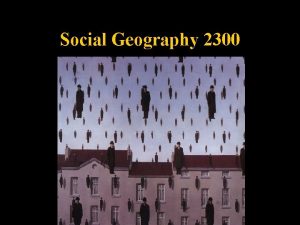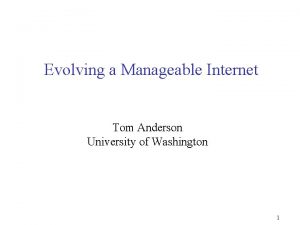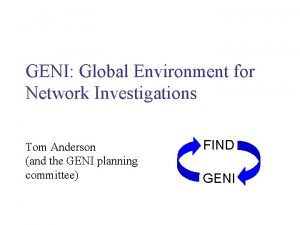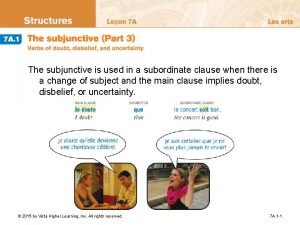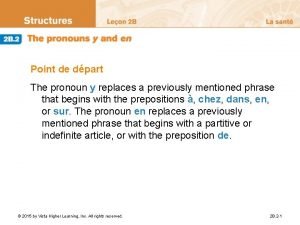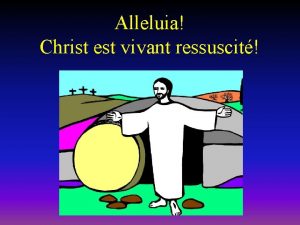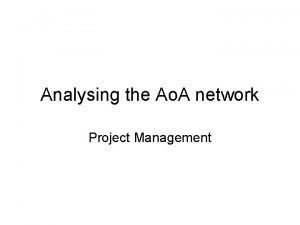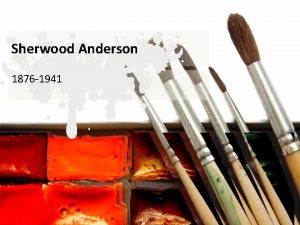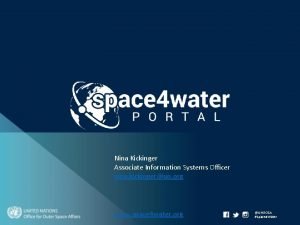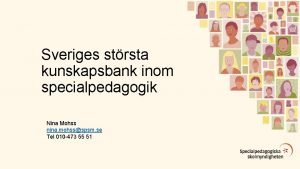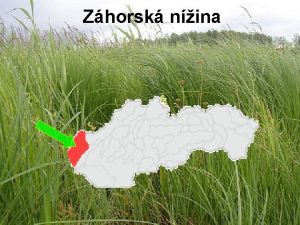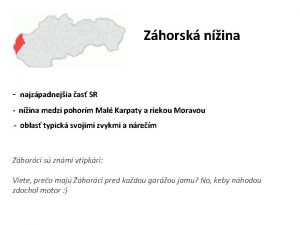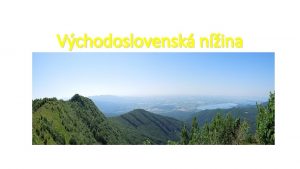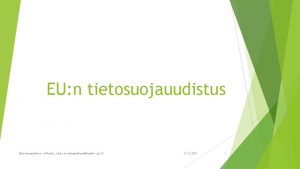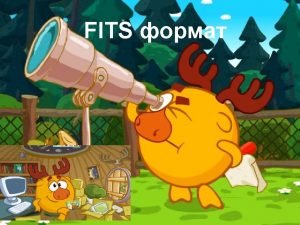Nina Anderson Head of Qu EST University of













- Slides: 13

Nina Anderson Head of Qu. EST University of the West of Scotland THE GOLDILOCKS'S CHALLENGE: GETTING INSTITUTIONLED REVIEW JUST RIGHT!

Essentials. .

• • • • Institution-led Review 101 Consideration of support services Periodic review of all provision – one a cycle of not more than 6 years Ensure programmes are aggregated to provide coherence Include all credit bearing provision (PG/CPD/Collaborative/Research Students/Online) Some form of I-l. R activity taking place each year Evidence of embedding of UK Code for HE Engagement with relevant benchmarks Explore ways to reduce burden by engaging with PSRBs – reflect on outcomes of PSRBs at I-l. Rs Promote scrutiny & discussion of the institution’s approach to SCQF Each review team should include at least 1 external Review team must take account the range and volume of provision being reviewed Institutions to develop and deploy mechanisms to directly involve student in I-l. R, and take account of the increasing diversity of the student body. Institutional processes for student feedback and effectiveness of annual monitoring will be explicitly considered as par of I-l. R to provide robust, comprehensive and credible evidence that academic standards and quality of provision are being maintained.

FREEDOM & FLEXIBILITY…. • We can determine how to schedule I-l. Rs • We can decide how to aggregate provision for review

Size and Composition of the review panel #1 external

We have control of how we facilitate periodic review of the strategic and operation role of support services in relation to student experience

History of Institution-led Review at UWS • Grouped primarily around subject benchmark statements • Restructuring internal from Schools to Faculties… and back to Schools • At a more local level from Subject Development Groups to a more programmatic “programme primacy” approach and use of Programme Boards • Annual discussions with Assistant Deans about grouping and scheduling • Increased confidence in our QA/QE • Dare to be Different

Too Small Too focused? limit the number of individual programme reviews (PSRBs involvement/niche programme/multi site delivery).

Too Broad Too Big? • Lack coherence. . . but for some Schools larger groupings could be a option. • Logistics – we need to know the detail!

Just Right. . . ? . . for UWS. . . now! • Acknowledge and recognise the individual School structures; • Useful outcomes and enable teams to action outcomes based on School governance and reporting; • Reduce repetition and duplication where possible (PSRBs/NPPs/AM); • Spread then workload. . . no no group the workload!!; • 6 year cycle retained; • Qu. EST team happy. . . !.

School reactions! • Welcomed – Strong engagement in discussions • Some cautiousness but some creativity! • School specific approaches appreciated • Importance of recognising programme reporting lines • No major changes to the scheduling but changes to the aggregation.

Continuous process • Need to monitor and review • Learn from challenging events. . . and successful ones! • Partnership with Schools • Feedback from review teams and panels • ELIR 4. .

Thank you for listening. Any questions or observations?
 Richard anderson york university
Richard anderson york university Tom anderson university of washington
Tom anderson university of washington Global environment for network innovations
Global environment for network innovations Renard roux bébé
Renard roux bébé Il est douteux que le metteur en scène où est l’acteur.
Il est douteux que le metteur en scène où est l’acteur. Comment appelle-t-on la femelle du lièvre
Comment appelle-t-on la femelle du lièvre Papa est au garage? oui, il 1 of 1 est.
Papa est au garage? oui, il 1 of 1 est. Alleluia le christ est vivant
Alleluia le christ est vivant Je suis tu es elle est
Je suis tu es elle est Qu'est ce que c'est
Qu'est ce que c'est Est eft lst lft
Est eft lst lft Seul le silence est grand tout le reste n'est que faiblesse
Seul le silence est grand tout le reste n'est que faiblesse Je vais crier mon dieu
Je vais crier mon dieu Dieu tu es grand tu es beau
Dieu tu es grand tu es beau
